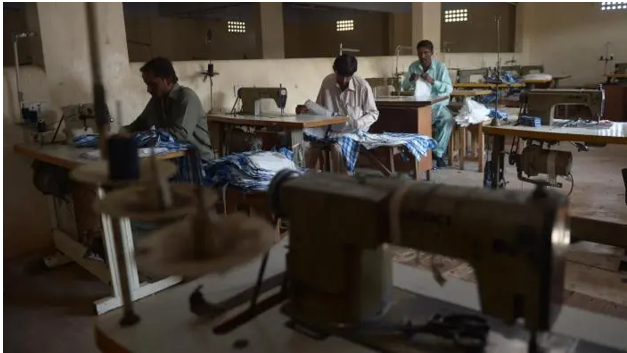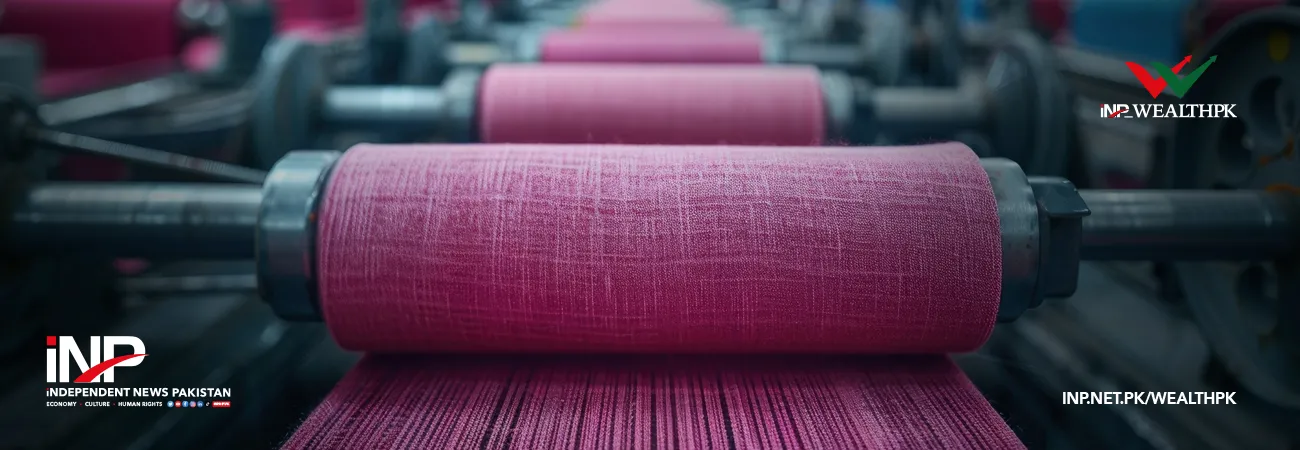INP-WealthPk
Moaaz Manzoor
The government has outlined a framework to embed sustainability, social responsibility, and labor safety standards in the textile and apparel industry to align Pakistan’s manufacturing system with international norms. These initiatives form part of the draft Textile and Apparel Policy 2025–30, which emphasizes responsible business practices, worker protection, and environmental compliance as central to the country’s export competitiveness.
According to the draft Textile and Apparel Policy 2025–30 available with Wealth Pakistan, the government aims to transform Pakistan’s textile sector into a sustainable and compliant industry that meets global requirements for environmental, social, and governance (ESG) performance. The document notes that, while the textile industry is the country’s largest export earner, it faces increasing pressure from international buyers to ensure transparency, fair labour practices, and environmentally responsible production.
The policy calls for the development of a National Framework on ESG to promote sustainable production, resource efficiency, and recycling across the textile value chain. The framework will support cleaner technologies, waste management systems, and reduced carbon emissions. It will also require textile manufacturers to disclose data on energy use, water consumption, and greenhouse gas emissions in accordance with standardised reporting protocols.
To support this transition, the Ministry of Commerce, in coordination with the Ministry of Climate Change and the Securities and Exchange Commission of Pakistan, will design mechanisms for ESG data collection, verification, and reporting. The initiative will help exporters meet buyer requirements for environmental and labor disclosures while enhancing the credibility of Pakistan’s textile exports.
The draft policy also stresses improving workplace safety and labor welfare. It calls for strengthening compliance with national labor laws and international labor conventions through regular audits, inspections, and capacity-building programs. The policy proposes stronger coordination between federal and provincial labor departments to ensure consistent enforcement of occupational health and safety regulations.
The document highlights the importance of promoting gender inclusion and diversity in the textile workforce. It encourages measures to increase the participation of women and persons with disabilities in both skilled and managerial roles. The Trade Development Authority of Pakistan will organize dedicated training and entrepreneurship programs for women to support their inclusion in value-added export operations.
The policy further encourages the adoption of international certification systems such as ISO 14001, ISO 45001, and SA8000 to validate environmental and labor compliance. It proposes offering fiscal and financial incentives to firms that meet internationally recognized sustainability and workplace safety standards. These certifications will help Pakistani exporters meet global sourcing criteria and access high-value markets.
The draft also emphasizes the importance of maintaining favorable trade status under preferential frameworks such as the European Union’s GSP+ and the United Kingdom’s Developing Countries Trading Scheme. It notes that continued access to these markets depends on verifiable progress in human rights, environmental protection, and worker welfare, making compliance an economic as well as social necessity.
The policy recommends partnerships with international organizations, trade bodies, and development agencies to implement social compliance and safety improvement programs. It calls for initiatives to promote occupational health, fair wages, and grievance mechanisms within industrial units.
The document underlines that integrating sustainability and labor safety into the textile sector will not only improve Pakistan’s global image but also attract responsible investment and long-term trade partnerships. It states that environmentally and socially responsible manufacturing will strengthen buyer confidence and help Pakistan retain its share in competitive international markets.
The draft concludes that embedding ESG, circular economy, and labor safety principles across the textile industry will ensure sustainable industrial growth and social progress. It emphasizes that these measures will make Pakistan’s textile exports more credible, resilient, and aligned with the sustainability standards of global buyers.

Credit: INP-WealthPk









